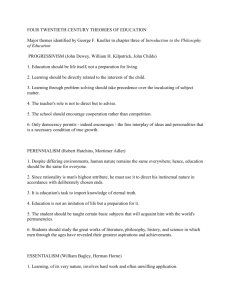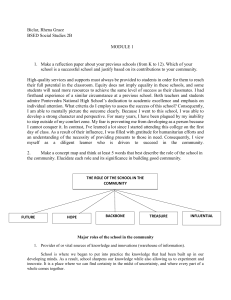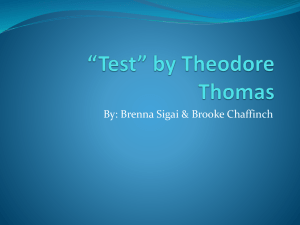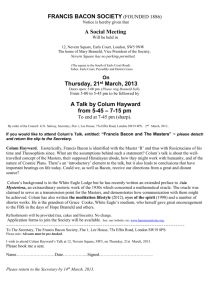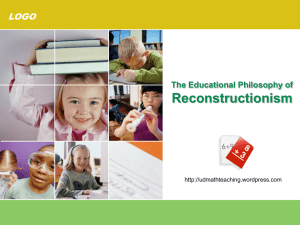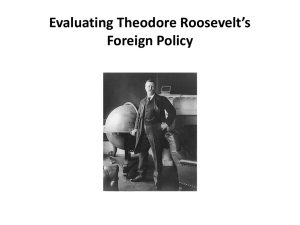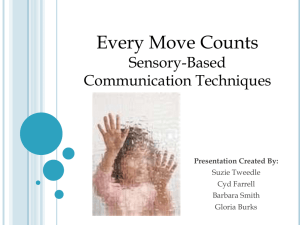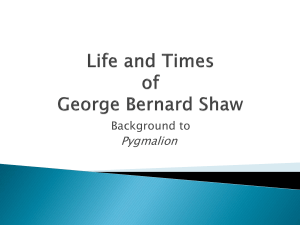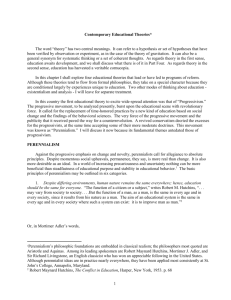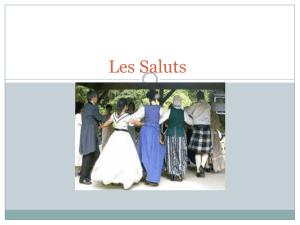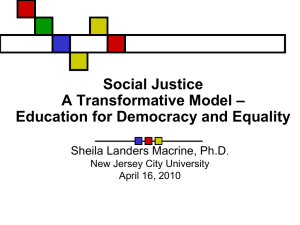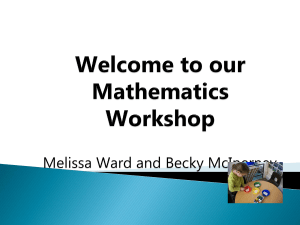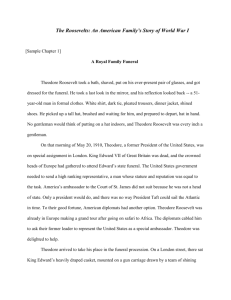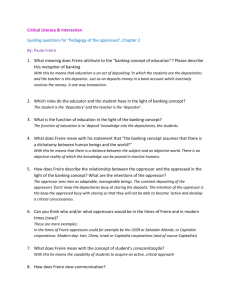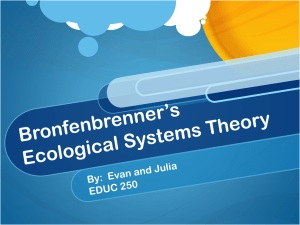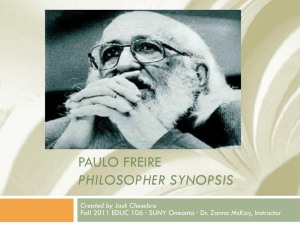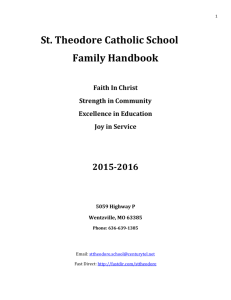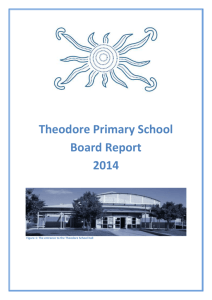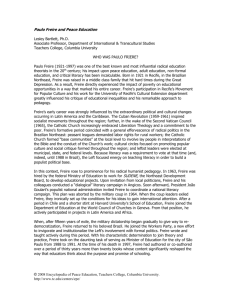Theories of Education: Social Reconstructionism
advertisement
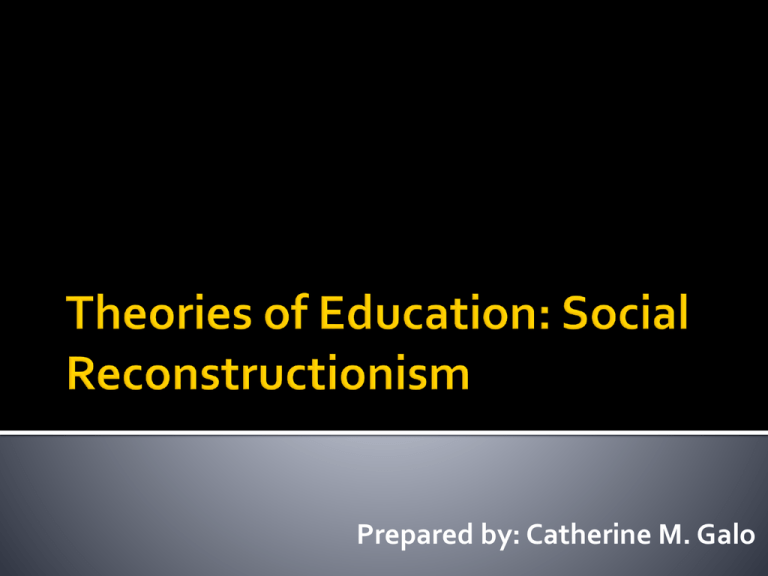
Prepared by: Catherine M. Galo is a philosophy that emphasizes the addressing of social questions and a quest to create a better society and worldwide democracy. heavily emphasizes social questions and questions about society itself in a better effort to create a more successful society in the future. focuses on a curriculum that highlights social reform. believe that systems must be changed to overcome oppression and improve human conditions. Theodore Brameld spent a lifetime working for personal and cultural transformation through education. Influenced by John Dewey's educational philosophy, Brameld urged that schools become a powerful force for social and political change. · George Counts (1889-1974) recognized that education was the means of preparing people for creating this new social order. Theodore Brameld originally came up with this theory as a reaction against World War II. He correctly recognized the potential for either human annihilation through technology and human cruelty or the capacity to create a society that was better through the use of technology and pure human compassion. Additionally, George Counts also recognized this as a valid theory in preparing people for creating the new social order. George S. Counts (1889-1974) Theodore Brameld (1904-1987) Harold Rugg (1886-1960) They were concerned that curriculum lacked relevance to the real world and ignored social problems. Ivan Illich (1926-2002) Paulo Freire (1921-1997) Freire wanted education to be drawn from everyday life experiences of the learners. (Foundations of American Education) Social Reconstructionist believes that students are the critical element in bringing about social change. They contend that students are capable of initiating and adapting to change especially if they are influenced by appropriate adult role models. A social Reconstructionist would strive to organize the classroom in a classless, nonsexist, and nonracist manner. There would be less emphasis on management and control and more focus on community building. Conflict resolution and difference in world views would be encouraged and reinforced. Contributed by: Kelcey Mason (Source: Foundations of American Education) Critically examine all cultural and educational institutions and recommended change and reform as needed. To teach students and the public not to settle for "what is" but rather to dream about what might be. Prepare Students to become agents for change Students are a critical element in bringing social change. Students are capable of initiating and adapting to change especially if they are influenced by appropriate adult role models. Thank you for listening!!! God Bless!!!
